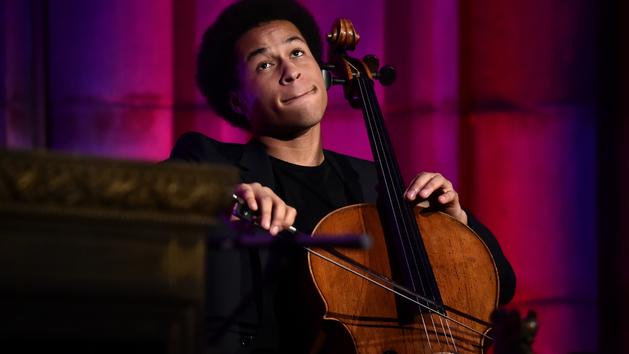The Black Lives Matter movement, which experienced a resurgence after the death of George Floyd, has brought into question the cultural sector, and in particular classical music.
In the United States, the musicians of the Metropolitan Opera have made a series of recommendations to make the prestigious establishment more inclusive in its programming. According to a report published by the League of American Orchestras, blacks represented only 1.8% of orchestral musicians in 2016 and Latin Americans 2.5%. Across the Atlantic, Bristol's Colston Hall, named after a 17th-century slave trader, is soon to be renamed.
Read also: United States: is classical music a "privilege" for Whites and Asians?
Is the world of classical music therefore racist, or at least still not very open to people from diverse backgrounds? "It’s very easy to point the finger at classical music, but I actually think it starts long before a professional career , " observes Sheku Kanneh-Mason, British cello virtuoso who became internationally known after playing the wedding of Prince Harry and Meghan Markle.
Unequal opportunities
Guest of the program Good Morning Britain , the young musician of 21 years believes that the environment is not in itself racist or a source of prejudice. According to him, the problem comes more from the lack of opportunities faced by racialized young people. "Very few blacks have the opportunity to experience it," he adds.
These opportunities are not so readily available to everyone
Isata Kanneh-MasonComing from a family of seven children, all musicians, he began to learn the cello at the age of six and won a scholarship to join the prestigious conservatory of the Royal Academy of Music Junior. He then took part in Britain's Got Talent and appeared in BAFTA in 2017. "We are very lucky, our parents worked very hard to allow us to have these opportunities, but they are not so easily accessible for everyone , " confirms his sister Isata Kanneh-Mason, prodigy of the piano.
Read also: Sheku Kanneh-Mason, brother of sounds
In 2019, keyboard superstar Lang Lang had already pointed out the situation at the Global Awards ceremony, which recognizes artists broadcast on British radios. “In our world, music lessons [have] become a real challenge. I really want to work with all of you to bring music [lessons] back to [public] schools. ”
According to a 2019 survey by the British Phonographic Industry, an English recording industry association, only one in eight of the most disadvantaged schools in the UK has an orchestra, compared to 85% of private schools.
When you go to concerts and observe the public, it is very little diversified
Stuart Mason, father of Sheku Kanneh-MasonStuart Mason, Sheku and Isata's father wants to be more confident in the sector's ability to adapt. “We recently found that things are improving in the classic world. But when you go to the concerts and you observe the audience, it is very diverse and we would like that to change - and our children participate in this change. ”

